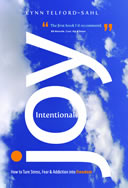Nice Girls Don't Get Rich author Lois Frankel, Ph.D (a rich woman in more ways than one) says that many of the characteristics that make women uniquely feminine are the very same behaviors that prevent them from becoming financially independent. What does she mean by that? 
Women are socialized to be the caretakers and still today more women go into the helping professions than men, which don't pay as well as other professions. Ms. Frankel says she spent "the first half her adult life believing that doing good and doing well were mutually exclusive."
Take a look at this "nice girl" programming and see what you think:
* Money is power, and most little girls are not taught to be powerful - they're taught to be "nice."
Are girls getting a different message today? I'm not so sure. Women are still called the "B" word when they act assertive, and not just by men. My cousin Kim Kelly, a professional polo player (horses not water) was treated bad by the male polo players, but got little support by women players. It makes me sad when I hear women putting down other women with comments like: "Women are so catty," or I hate working in an office of "backstabbing" women. I've always expected the best from women and that's what I've experienced.
* Girls are socialized to be caretakers, nurturers and accomodators - not necessarily breadwinners. (But many of us are.)
It's wonderful to be caring and loving. And, we know that taking care of a family, on top of a job, is exactly what it sounds like - 2 jobs!! One solution I'd like to see is better child care help in terms of subsidies. If we can subsidize big business, what about working women with young children? It will take more women in Congress to accomplish this. Currently America has one of the lowest representations of women (16%) of any of the industrialized nations.
* Women are more likely to spend their income on their children and the household, whereas men are more likely to be prudent about investing. Women ARE the consumers in our culture. Something like 80% of goods bought are bought by women. That's all fine, but we have to get better at saving and thinking of our future - afterall, as I've said before in this blog, all those shoes in our closet won't feed or house us in retirement.
Two questions for you to Consider: What do you think it will take for us women to be both "nice" and powerful with our money? What would happen if you stopped being so concerned about whether others see you as "nice" and focused more on making and keeping more of your money?
 Monday, February 13, 2012 at 12:39PM
Monday, February 13, 2012 at 12:39PM  Post a Comment
Post a Comment 

 Lynn Telford-Sahl tagged
Lynn Telford-Sahl tagged  Lois Frankel,
Lois Frankel,  Nice Girls Don't Get Rich,
Nice Girls Don't Get Rich,  class society,
class society,  financial stress,
financial stress,  wealthy women,
wealthy women,  women and money,
women and money,  women's socialization
women's socialization 








